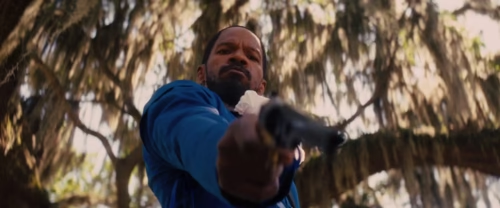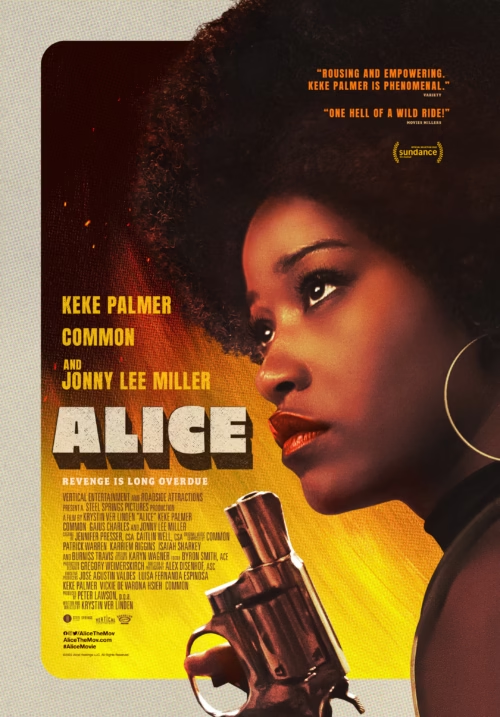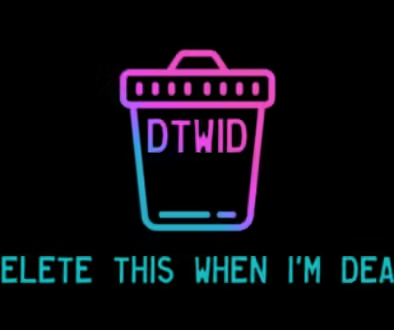Try Jesus Not Me
A shallow exploration of the respectability of Black “revenge” fiction

Django Unchained had the right idea. It’s a story told from a white lens that explores the basic “what if” of a formerly enslaved person getting revenge on their white oppressors. And while it is chock full of shit that a white creator was far too gleeful to put on paper and then on film, it actually did speak to a specific desire to see bad people be treated in kind. It got one part very right: it feels good to see bad behavior punished. Even more so when the punishment is experiencing a pain they’ve inflicted on others.
That’s not to say narratives about justice for enslaved people should end in the enslavement of their former masters, a role reversal, but that those specific violators should know some semblance of the pain they caused. All white folks in the US shouldn’t be directly punished for slavery, but the people who actively participated should. And given the chance, the people who were harmed should have a say in what that punishment looks like.
White people fear that reversal, that one day they will have to pay for every sin of their forebears. And stories that center Black revenge very rarely allow for a real exploration of what that looks like when the harmed party actually does want some get back.
“When they go low we go high” is not effective in real life politics, and it is genuinely unsatisfying as a moral imperative for Black characters facing egregious anti-Black violence. Mercy doesn’t feel good or powerful in the face of people who would not only not return that mercy to you, but would actively punish you for the mercy you’ve shown if given the chance. Mercy is never rewarded with genuine remorse or changed behavior, it is simply Black folks’ burden to be the “the better people.”
When approached literally, the Master’s Tools will Dismantle the Master’s House. When we’re not speaking in metaphor, the master’s house is quite literally a place that can be burned to cinders. The masters are real, flesh and bone people, who can be harmed and killed. New structures can be built, new masters can rise up but that’s true with or without a delicate, non-violent tearing down of the oppressive structure. Because when we’re not speaking in metaphor, the master’s tools—violence—are the only way to safety or a semblance of justice.
I don’t believe revenge equals justice in the real world, but part of the point of fiction is to give us opportunities to experience things we wouldn’t experience in our own lives. Fiction gives us a path towards feeling and doesn’t require us to walk it ourselves, but to merely witness. What we can do in fiction is make choices that feel good in the moment that only have to feel good in the moment because the story ends there. If we can choose to give characters the opportunities for revenge, why do we so often choose to make them merciful?
Again, mercy doesn’t really feel good. People pray, even beg for the ability to give grace. Then harbor guilt when their feelings, often earned and justified, don’t make room for forgiveness. And I get that it serves the function of showing Black folks as better than their oppressors. But why is that necessary? Pretty much all branches of Christianity allow for repentance, yet Black folks continually choose to give grace where violence is not only due, but could actually prevent worse violence. Black storytellers butt right up to the line of revenge but almost always stop short.

In Alice, the titular character played by Keke Palmer spends half the film just… learning that Black people are free. The movie spends perhaps 10 minutes at the end on the actual act of revenge. She and her new buddy Frank concoct a plan to start a fire that leads the first responders to the plantation, where they discover dozens of Black hostages. Alice shoots the slaver a few times, nothing fatal, and ties him up as she had been a few days before.
It just does not give what needs to be gave. Thankfully the film doesn’t linger on violence, so while the beatings and sexual assaults are inferred, we’re not subjected to them. Still we know they happen, and we know Alice has been recently subjected to it. And yeah, for a brief moment, Alice shooting her former tormentor is a “yassss” but when she leaves him there for the authorities it just immediately dulls. Because the audience still knows that institutions are corrupt, and that a white man being “caught” does not in any way mean he’ll be punished or that his captors will have justice.
If Alice can’t go back to the illegal plantation where generations of her family have been unlawfully enslaved and not only burn every single bit of it to the ground but enact even a 10th of the violence on her “masters” that was inflicted on her and her people, what is the point? If we can’t get a conclusion of this particular story that tells us that this man and all of his cohorts were gotten the fuck up outta there, that the Black folks on these illegal plantations were treated with some kind of care… What is the point?
A black firefighter showing up does not in any way allude to a “happy ending” or suggest—like I believe the filmmakers were trying to—that the situation would be treated with the care and consideration it demanded. Because, as the film told us maybe 10 minutes prior, shit still fucked up out here for Black people. Systems are still racist. So if you can have a former Black Panther tell a formerly enslaved person that white people are still winning—if you can acknowledge that justice isn’t a guarantee or even likely—why would you hinge the climax of the film on Alice merely exposing this man to authorities? When you’ve established that it still means fuck all in a racist and unjust society.
In real life, burning down one house and killing one man wouldn’t stop a whole system. But fiction is not real life. What Alice fails to do, and what other Black media that pits Black folks against white supremacist violence fail to do, is conclude. Definitively. There’s always the specter of something else waiting to happen because revenge or justice is tied to a respectability that unfairly positions Black characters as vessels for godlike grace.


